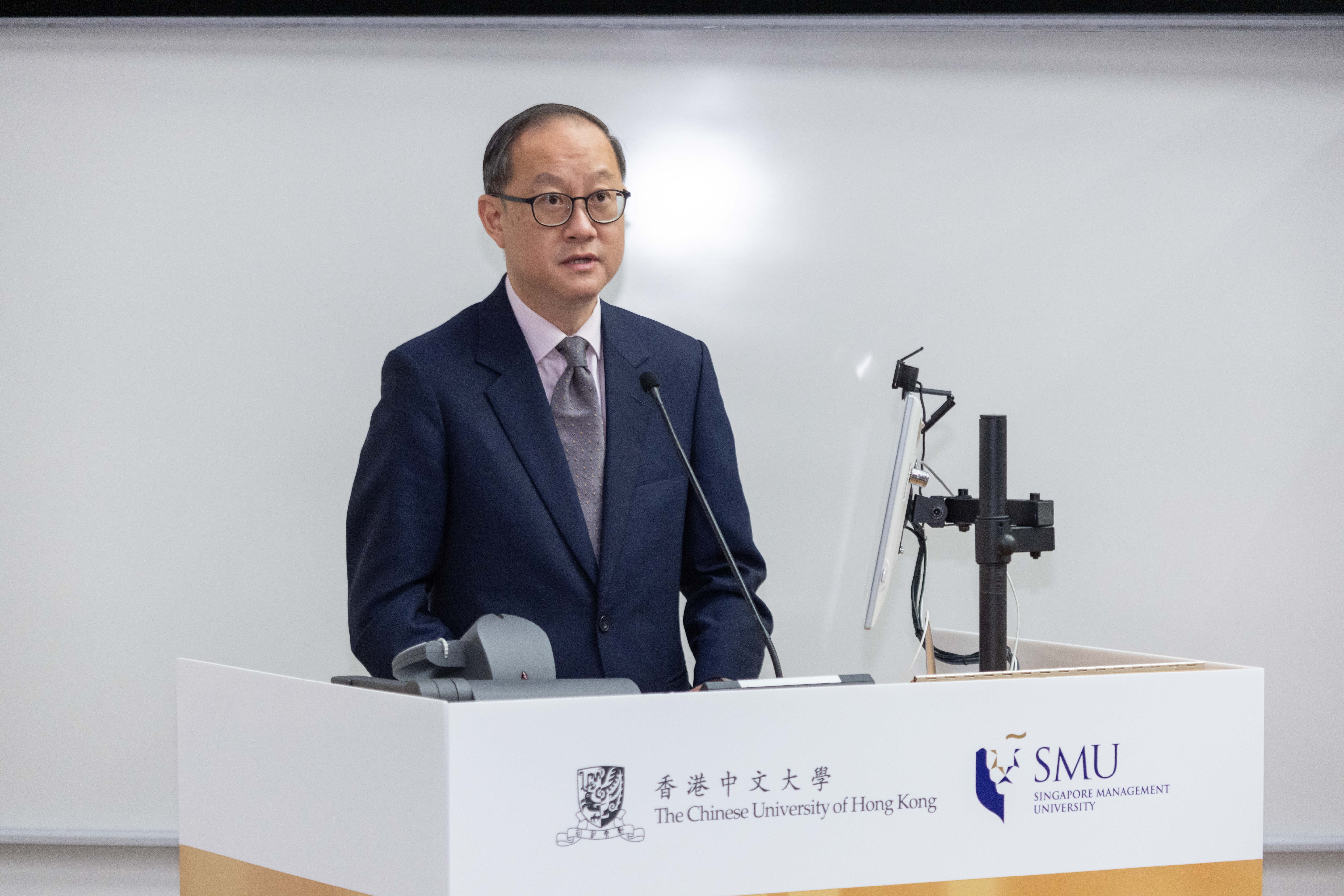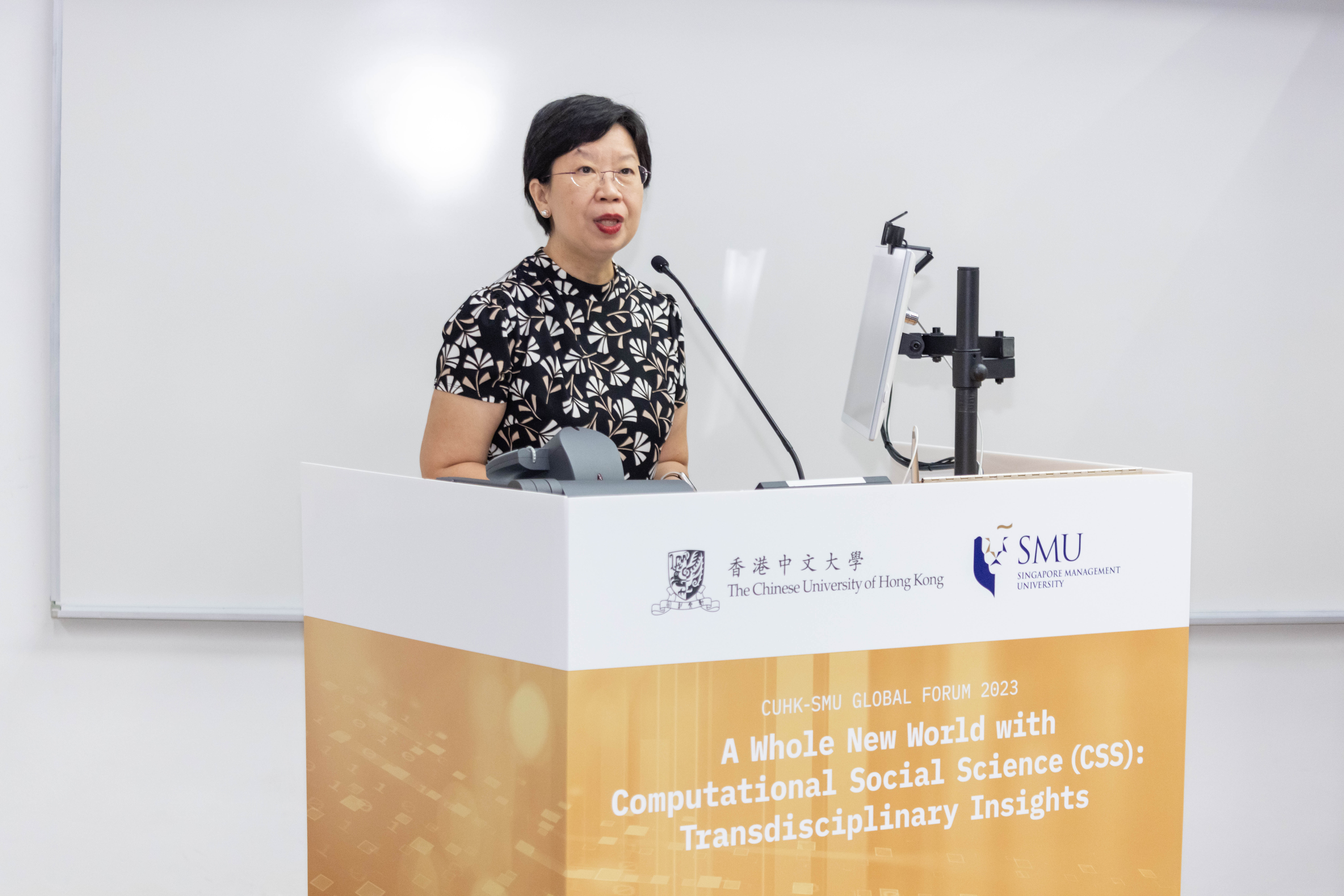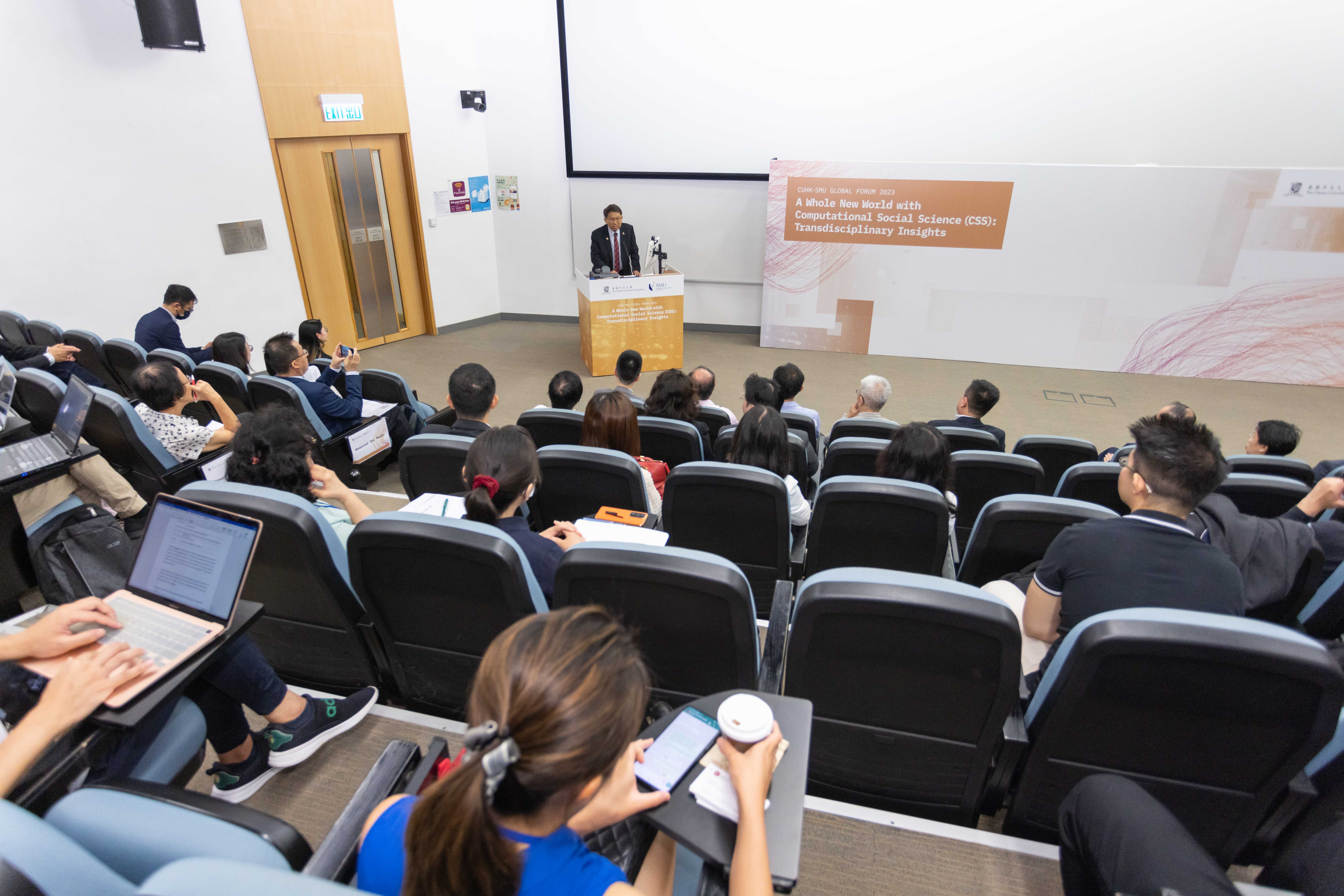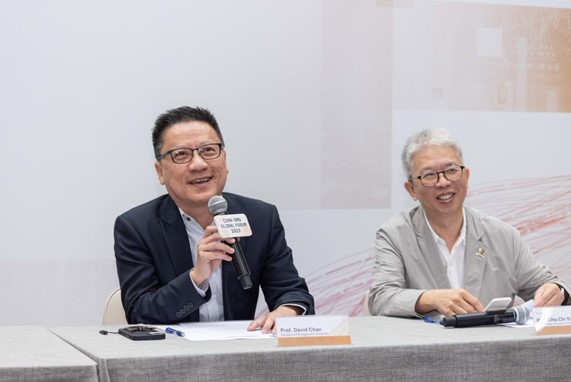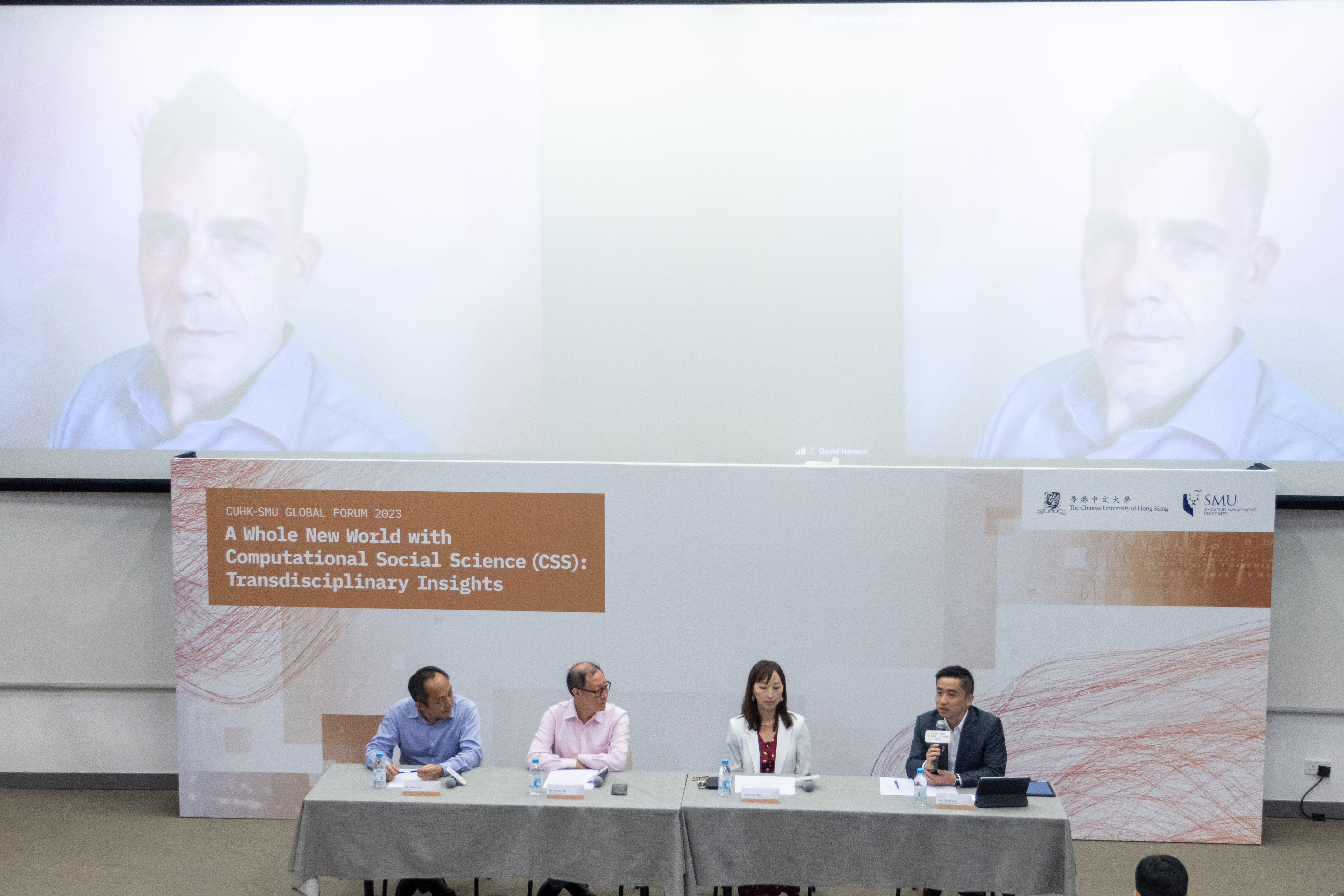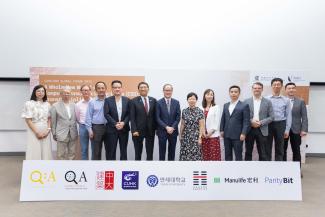
“Computing technologists should work closely with people from the social sciences and the behavioural sciences, bringing together the expertise, knowledge, and skill sets, to address real-world problems, because the world is really not compartmentalised into the disciplines,” SMU Professor David Chan made this point at the SMU-Chinese University of Hong Kong (CUHK) Global Forum 2023 on 23 June.
Themed “A Whole New World with CSS: Transdisciplinary Insights”, the 11th edition of Global Forum brought together computer scientists, social scientists and practitioners from Hong Kong, Singapore and South Korea to share insights into for Computational Social Science (CSS) can address societal issues and challenges.
Singapore’s Counsel-General Ong Siew Gay underscored the importance of an interdisciplinary approach to societal issues and challenges when he said in his Opening Remarks that Computational Social Science, by providing an inter-disciplinary perspective, analysing big data and leveraging technology, “has great potential to help provide urban solutions”.
Reaffirming the saliency of CSS, SMU President Lily Kong said in her Welcome Remarks that “CSS can revolutionise the way we understand human behaviours and interactions. Big data and machine learning, for instance, enable sophisticated detection and analysis of social behaviour and public opinion, providing a launchpad for innovation and change.”
On the other hand, CUHK Vice Chancellor Rocky Tuan pointed out that CUHK and SMU were engaging in a meaningful dialogue to “ share insights on how to exploit new advances in Big Data-empowered social and behavioural sciences to inform the design of sustainable future cities in Asia”.
This edition of the Global Forum comprised two keynote panel discussions. The morning session, titled "Evidence-based CSS: Insights from Academia", featured Prof David Chan; Assistant Prof Jeroen van Ameijde from CUHK’s School of Architecture; and Prof Jeong-han Kang, a Sociologist from Yonsei University. Prof Chi-Yue Chiu, Choh-Ming Li Professor of Psychology and Dean of CUHK’s Faculty of Social Science, moderated the session.
During the panel discussion , Prof Chan prompted the audience to ponder whether one should use the term “Computational Social Science” or “Computational Social Sciences”. He suggested that the former term better captured the emphasis on the integrative unity of scientific insights which transcended disciplinary boundaries, whereas the latter term underscored the fact that no one discipline had monopoly over solutions to real-world problems which could only be co-created by different disciplines coming together. Prof Chan then advocated for humility, adaptability, and the establishment of collaborative platforms as means to navigate and overcome challenges in application of CSS.
The afternoon panel, titled "A New World enabled by CSS: Insights from Policymakers and Practitioners” was moderated by SMU School of Computing and Information Systems’ Associate Professor Zhu Feida. The panel comprised Dr David Hanson, CEO of Hanson Robotics; Associate Prof Lisa Wan from CUHK’s School of Hotel and Tourism Management; Mr William Hui, Director of IT Innovation R&D, Manulife; and Dr Luo Zhen, Founder and CEO of ParityBit.
The panellists engaged in a lively discussion on Artificial General Intelligence, including platforms like ChaGPT, and its profound impact on people’s lives. The audience joined the panellists in exploring contemporary topics, such as data governance, open data, the much- debated concept of immortality through AI, and the need for new regulations and laws in this field. In terms of practical applications, Prof Zhu and Prof Wan shared about the use of service robotics to address manpower shortage during the Covid-19 pandemic in Singapore and Hong Kong, respectively to support the tourism industry.
“We are very positive in embracing this technology and recognising that it will significantly reshape our landscape for education, our lives and social sciences. We also recognise there are many challenges and interdisciplinary technical issues we need to solve before we can actually make it all happen,” concluded Prof Zhu at the end the session.
In a post-Forum interview with NetEase, Prof Zhu offered a glimpse into the future. He envisioned a significant shift where individuals would allocate a substantial amount of time to the virtual realm, rather than physical spaces. This transformation would facilitate the collection of digital traces of human behaviour in the virtual world and would fundamentally transform our approach to the study of social science.
The SMU Global Forum series, which made its debut in 2014, provides a high-level dialogue platform for SMU and our partner universities in China to share knowledge and exchange insights and experiences on societal challenges. This year, the event was held for the first time in Hong Kong, and involved a speaker from a third Asian university - Yonsei University, a valued partner of both SMU and CUHK. The hybrid Global Forum was attended by close to 400 participants and attracted strong media interest from Asia to America. Some 500 international mainstream and online media reported on the event, including Bloomberg, Associated Press, Fox, and Sina News.
